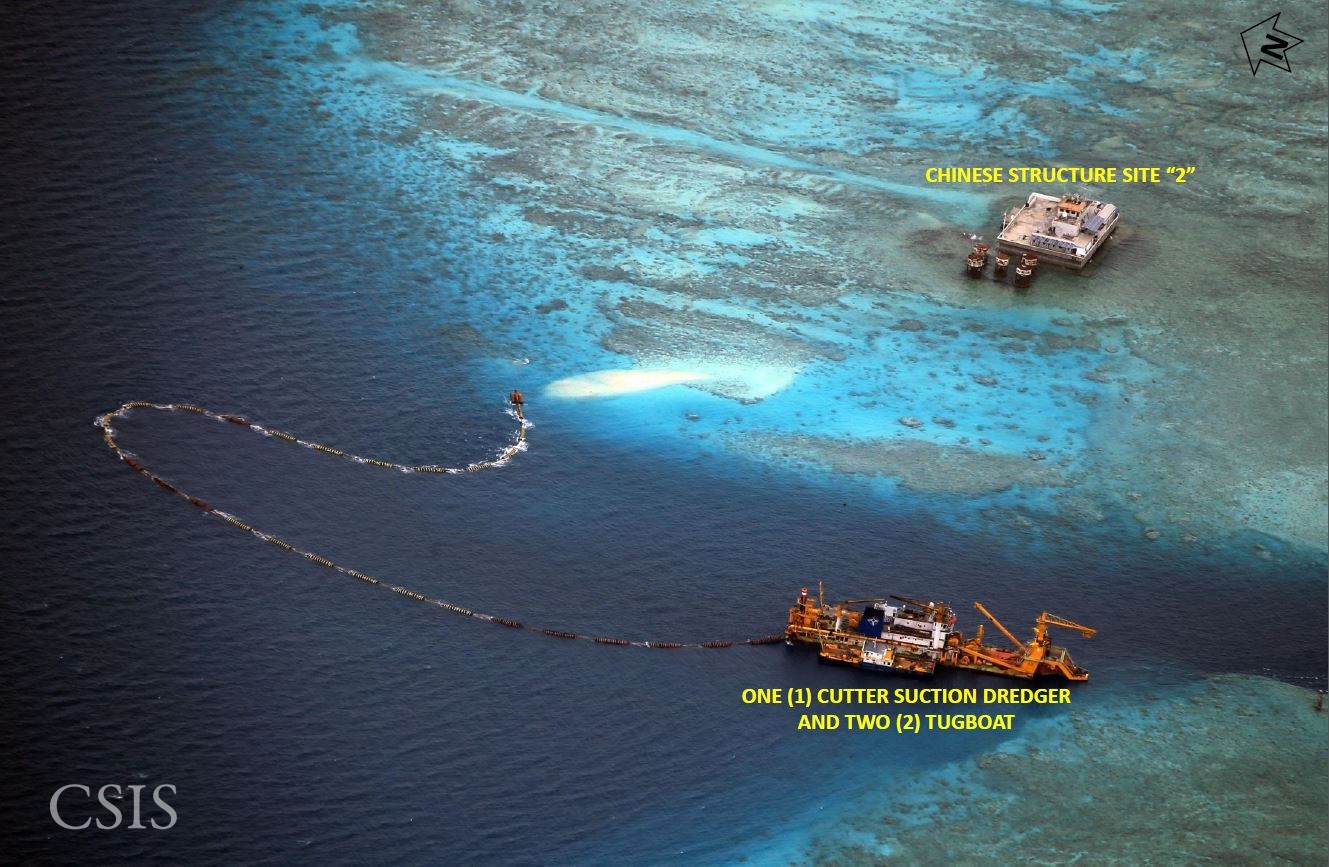
BEIJING — China said Thursday it was entitled to keep watch over airspace and seas surrounding artificial islands it created in the disputed waters of the South China Sea, following a reported exchange in which its navy warned off a U.S. surveillance plane.
Foreign Ministry spokesman Hong Lei on Friday reiterated Beijing’s insistence on its indisputable sovereignty over the islands it has created by piling sand on top of atolls and reefs.
While saying he had no information about the reported exchange, Hong said China was “entitled to the surveillance over related airspace and sea areas so as to maintain national security and avoid any maritime accidents.
“We hope relevant countries respect China’s sovereignty over the South China Sea, abandon actions that may intensify controversies and play a constructive role for regional peace and stability,” Hong told reporters at a daily news briefing.
A news crew from CNN reported it witnessed an incident Wednesday in which a Chinese navy dispatcher demanded eight times that a U.S. Air Force P8-A Poseidon surveillance aircraft leave the area as it flew over Fiery Cross Reef, where China has conducted extensive reclamation work. It said the U.S. crew responded that they were flying through international airspace, to which the Chinese dispatcher answered: “This is the Chinese navy … You go!”
CNN said it was given exclusive permission to board the surveillance flight because the U.S. wants to raise awareness of China’s island building project. It also said it was the first time the Pentagon had declassified audio of the Chinese making such challenges.
China’s construction has intensified frictions among competing parties in the South China Sea, which Beijing claims virtually in its entirety along with its scattered island groups. The area that is home to some of the world’s busiest commercial shipping routes is also claimed in part or in whole by the Philippines, Taiwan, Brunei, Malaysia and Vietnam.
The U.S. and most of the 10 members of the Association of Southeast Asian Nations want a halt to the projects, which they suspect are aimed at building islands and other land features over which China can claim sovereignty and base military assets.
The U.S. says it takes no position on the sovereignty claims but insists they must be negotiated. Washington also says ensuring maritime safety and access is a U.S. national security priority.